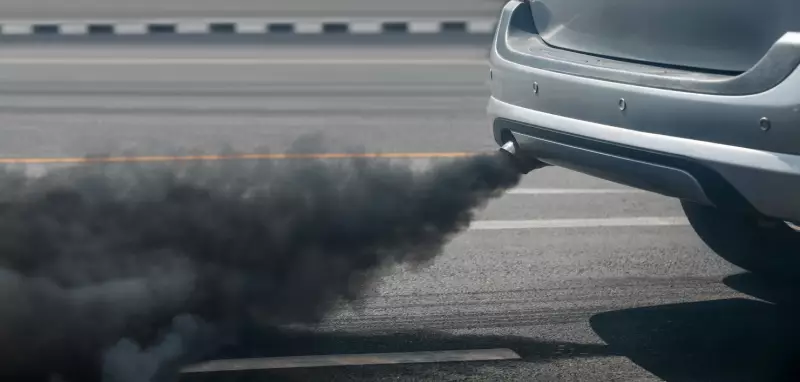The color of the fumes coming from the exhaust reveals a lot about the state of the vehicle’s engine. It also serves as a cue to which mechanical issue is plaguing it. This may be blue, white, or black. Black smoke is generally the easiest to spot and hints at a problematic combustion process. If the engine is running rich, the fuel ratio is much higher than the air in the combustion chamber. The result is black smoke which presents through the tailpipe. Understanding the cause of these problems can lead to better combustion efficiency and increase the engine's lifespan.

What Causes black smoke from the Exhaust
Black smoke from the exhaust means the engine is burning a higher ratio of fuel to air than it usually should. It is typically caused by the level of fuel or airflow issues. Regardless, when the mixture is too rich, it can cause incomplete combustion. One of the leading causes behind this is a malfunctioning fuel injector.
If fuel injectors become worn out or clogged, they could lead to excess fuel-to-air mixtures. Another potential reason is a problematic air filter. If the filters are dirty or clogged, airflow will be restricted, which could make the engine use more fuel.
Why is There Black Smoke when Accelerating
Black smoke emerging from the vehicle’s exhaust is a common concern among DIY mechanics. This phenomenon usually indicates that the engine is currently burning a too-rich mixture. It may occur because of clogged or dirty air filters, which restrict the amount of air entering the engine. The restriction also forces the engine to burn more fuel than necessary.
Boost leaks in turbocharged engines can also be a cause. These leaks cause an improper air-to-fuel ratio, which may emit black smoke under load or during acceleration. Over time, the fuel injectors may wear out or get dirty, disrupting the spray pattern, which may also cause black smoke during acceleration.
How to Fix Black Smoke from Exhaust
Black smoke from the exhaust should be approached in a systematic manner. Instead of assuming it is a malfunctioning or worn-out air filter, the best thing to do is diagnose the issue. This should be visual at first, but progress to an OBD2 scanner if necessary. Start with a visual assessment of the engine bay. Look at the air filter and inspect it for dirt and blockages.
The same applies to the turbocharger and intercooler systems. Check the fuel injectors and listen for irregularities. Uneven idling or misfires can indicate injector issues. A mechanic may also perform a fuel injector balance test to determine if the injectors are malfunctioning.
Alternatively, the exhaust gas recirculation system valve can disrupt the air-fuel mixture, leading to black smoke. Check for clogs, damage, or carbon buildup. Preventative maintenance, though, is essential to avoid black smoke emissions. Regularly check and replace air or fuel filters. Opt also for high-quality fuel to prevent carbon buildup.
What Does White Smoke from Exhaust Mean?
Black smoke alludes to problems with fuel combustion, but white smoke points to a set of entirely different issues. It could mean water or coolant within the combustion chamber or exhaust. When coolant gets into the engine cylinders and burns with the fuel, it produces a thick white smoke. This usually happens in the event of a cracked engine block or blown head gasket. Both of these are serious issues that require urgent engine repair or replacement.

How to Fix White Smoke from Exhaust
White smoke from the exhaust typically means water or coolant has reached the combustion chambers. To fix this problem, first, observe how it presents. Begin by noting if the smoke only appears during cold starts. If the smoke lingers with a sweet smell, the engine will likely burn coolant. Perform a leak-down or compression test.
This can pinpoint where the coolant is escaping. In these cases, overheating of the engine block may also cause cracks. Use pressure or dye testing to find the cracks. Severe damage to either might require engine block or cylinder head replacement. If, after checking these components, the source of the white smoke is still elusive, seek professional assistance.




















